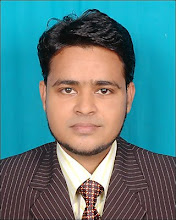Unity can be achieved only by adhering to Tawheed
 MAULANA ABDUL WAHAB KHILJI belongs to Malerkotla, Punjab. After having received his post-graduate degree in Islamic Studies from Islamic University, Medina with specialisation in Dawah and Aqeedah, he served Jamiat Ahle Hadees as its general secretary for two consecutive terms and is one of the founder members of Milli Council. He was also chief editor of Urdu fortnightly Jareeda Tarjuman for 18 years.
MAULANA ABDUL WAHAB KHILJI belongs to Malerkotla, Punjab. After having received his post-graduate degree in Islamic Studies from Islamic University, Medina with specialisation in Dawah and Aqeedah, he served Jamiat Ahle Hadees as its general secretary for two consecutive terms and is one of the founder members of Milli Council. He was also chief editor of Urdu fortnightly Jareeda Tarjuman for 18 years. |
| Maulana Khilji (second from the right) attending a conference |
At present he is member of different organisations, including All India Muslim Personal Law Board. In an interview with MOHAMMAD SHAHABUDDIN he said Tauheed (Islamic monotheism) forms the bedrock of Islam; without Tauheed unity of the Ummah cannot be imagined.
What Jamiat Ahle Hadees has been doing for the uplift of Indian Muslims?
Jamiat Ahle Hadees is basically an educational and Dawah organisation. It has constantly been striving to address the problems of Muslim Ummah. It tries its best to solve the problems in the light of the teachings of the Qur'an and the Sunnah.
What strides the Jamiat made during your stint with it as general-secretary?
We did our best to raise the standards of discipline in the organisation. You know, an organization cannot survive without abiding by certain rules and regulations, and discipline. In order to rejuvenate the organisation, we made trips to different cities, district headquarters, towns and villages. I personally visited Assam, Orissa, Jharkhand, Kerala and Tamil Nadu. These were the places where the organisation was fledgling. We also paid attention to the issues related to the youth, who, I believe, are the soul of the Ummah. I observed that some people were misleading youth regarding fundamentals of Islam and trying to attract them towards un-Islamic trends in society. Thus, we strived to encourage Muslim youth to take up some constructive tasks to be carried out. We called upon them to have Islamic approach. A large number of
youth gave positive response and renounced their extreme approach to the various problems. In order to unite I organised an all-India convention in 1989 in the Capital and launched a youth organisation Shubban-e-Ahle Hadees. But I am afraid, it couldn't delivered as was expected.
However, its message reached to different parts of the country. Apart from them, I tried to make a good rapport with different Muslim organisations and groups. We became, to a large extent, successful in removing some misconceptions about the Jamiat.
What part the Jamiat has played for Muslim unity?
We stood united along with other Muslim organisations and groups in the face of cropping up of any problem confronting the community so that we can solve it in the
light of Divine guidance. We try to reach the Muslims at large teaching them to be united.
What course of action do you suggest to be adopted by Muslim leaders and masses in order to strengthen the bonds of Muslim unity?
See, there are some prerequisites for unity in any section of society anywhere in the world. We have to resort to Islamic principles when we proceed to this direction. Tauheed (monotheism) forms the bedrock of Islam. Without following this belief in letter and spirit unity can't be imagined. This is why Allah, the Almighty, has proclaimed in His Holy Book: “And verily this Ummah of yours is a single Ummah and I am your Lord and Cherisher: therefore worship Me (and none other).” Whenever there is a diversion from this bedrock belief, there creeps in ignorance and arrogance.
It is a good sign that there are several joint forums of Muslims to tackle different issues like Muslim Personal Law Board, Milli Council, and Muslim Majlis-e-Mushawarat.
What is your opinion about Hindu-Muslim unity?
Unity with Non-Muslims can be achieved on the basis of the Qur'anic principle: 'Help one another in acts of righteousness and piety; and do not help one another in sin and transgression’.
Although you had been associated with a particular organisation, how it came to you to join Milli Council?
I have been associated with Mill Council since its inception. I was one of its founder members. I have been on its executive committee for a long time. I had close acquaintance with late Qazi Mujahidul Islam Qasmi, who was the founder of the Council. Qazi sahib proposed to me two times the post of general-secretary, but I actually had no time to spare since I was already occupied with the responsibility of the Jamiat, as its general-secretary.
What could be done to avoid the differences over seeing of the moon (before Eid), as impinges on the unity of the Ummah?
It is the responsibility of Ulema of various schools and representatives of Muslim organisations to sit together and reach a consensus.
We can also follow the case of other Muslim countries like Saudi Arabia. There if the moon is sighted anywhere in the country, Eid is celebrated across the country. This time in Delhi, the celebration of Eid on two different days was an unusual kind of incident. It happened due to communication gap. There were some people who didn't wait and declared in the early hours of night that the next day was not Eid. Newspapers had also been briefed. The witnesses were turned up late, thus, the people on this task opined that the declaration had already been made and then it would not be proper to revert it. But
according to my point of view, it was also not proper to observe fast when witnesses had approached the authority entrusted with this task.
Yes, it could have been done that the people who had witnessed the moon and those believing in their version could not observe the fast on that day, but wait for a day to celebrate Eid together with others for the sake of the unity in the community.
What are the aims of the Milli Council and what are its achievements?
Milli Council is an organization which has risen to heights in a short span of time. The Council has taken different initiatives to solve different issues related to the nation and the community. For example, the Council was the first to address the issue of TADA.
Some Muslims and a section of media refuse to accept the status of Muslim Personal Law Board as a joint forum of Indian Muslims - of which you're also a member?
There is a class of so-called modern Muslim intellectuals who have their own viewpoint regarding Islam and issues of Indian Muslims. The Press too has its own standpoints and prejudices. The AIMPLB is a united platform of Indian Muslims. There's not a shred of doubt in it. And it has achieved great success in its aims.
(Published in Radiance Viewsweekly, 12-18 December 2004)








